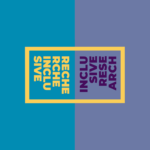“I saw what research could do: the power to rebalance power relationships, and the power to bring about a more egalitarian dialogue.”
Eva Ottawa, Assistant professor, Civil Law Section, Faculty of Law
The fourth day of the Autumn School on the Methodology of Research in Law turned its focus to research with communities. In this video, Dr. Jude Mary Cénat, Professor Eva Ottawa, Professor François Larocque and Professor Delphine Nakache share with us their collaborative, inclusive and engaged research methods in their work with diverse communities.
Dr. Cénat tells us about his research with black communities, specifically, his work on mental health within the black community and the overrepresentation of black children in child protection. He explains how the process of speaking to members of marginalized communities, and generating real, empirical data can help communities to foster real change.
Professor Ottawa shares with us her research which aims to document customary adoption practices in the Atikamekw Nehirowisiw community of Manawan. She explains how she followed an interdisciplinary approach using legal anthropology to analyze the data she collected. Her work places the utmost importance on working with members of the community and learning from their traditional knowledge.
Professor Larocque tells us about his research in the field of language rights. He uses an engaged approach based on the co-production of knowledge with minority language communities, valuing how affected communities perceive language and codified language rights. His work is also inspired by the interdisciplinary approach to language law pioneered by Professor Pierre Foucher, whose work is distinguished by the connections he makes between different human sciences and language rights.
Professor Nakache shares with us her passion for field research. Her recent work focuses on the most marginalized groups among temporary migrants and immigrants in Canada and internationally. Her approach consists of identifying gaps in the migratory system and working in collaboration with community partners and various stakeholders in order to find solutions aimed at reducing the precariousness experienced by certain marginalized communities.
While the different forms of community research described by the panelists can be challenging and emotionally draining, each researcher points to the enormous benefits that can be gained from working directly with people who are affected by legal problems and who stand to see their lives improve through research-based solutions.

